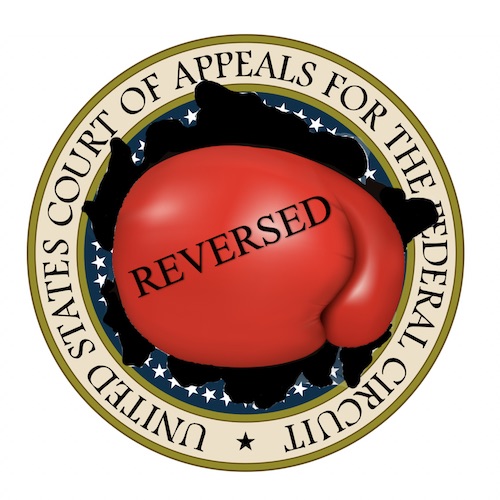USTR’s Special 301 Report Says China’s Improvement on IP Has Slowed
“While this report highlights the importance of safeguarding IP rights critical to continued investment, the backsliding evidenced through the debate over the WTO TRIPS waiver indicates that the United States may be abdicating its traditional role in upholding IP rights.” – U.S. Chamber
The United States Trade Representative (USTR) released its annual Special 301 Report on April 26, adding two countries to the “Watch List”: Bulgaria and Belarus. In total, there are now 29 countries on either the Priority Watch List or Watch List, up from 27 last year.
Belarus was added because it passed a law that “legalized unlicensed use of certain copyrighted works if the right holder is from a foreign state ‘committing unfriendly actions.’” This includes the U.S. sanctions imposed on Belarus for its support of Russia’s invasion of Ukraine. “Furthermore, Belarus can keep royalties from this unlicensed usage and shift them to Belarus’s general budget, meaning that the Lukashenka regime would directly financially benefit from this unauthorized usage,” a USTR press release issued yesterday said.
Bulgaria made the list because it failed to “sufficiently address deficiencies in its investigation and prosecution of online piracy cases, such as by allowing criminal investigations, expert examinations, and prosecutions to proceed with just a subset of seized infringing works.” These deficiencies were identified via an Out-of-Cycle Review of Bulgaria in 2022. The USTR plans to conduct another such review of Bulgaria in 2023.
Argentina, Chile, China, India, Indonesia, Russia and Venezuela are on the Priority Watch List. The USTR must create action plans for each Priority Watch List country that has been on the Priority Watch List for at least one year, which is all of them. No countries were removed from either list this year.
China Problems Persist
In its section on China, the Report notes that the pace of the country’s efforts to improve IP protection and enforcement has slowed. In last year’s Report, the USTR noted that bad-faith trademarks were a significant problem for U.S. IP owners in China, and this year the Report notes that the country proposed further amendments to its Trademark Law in January 2023 to address this issue. “The amendments include provisions on identifying the types of activities that are considered bad faith acts, a requirement on use or to explain non-use of a trademark, and rules for assessing a trademark’s well-known status,” says the 2023 Report. The Beijing IP Court has also issued several favorable decisions for IP owners. “However, bad faith trademarks remain one of the most significant challenges for U.S. brand owners in China, and the United States continues to urge China to take further steps to address concerns, including by adopting an intent-to-use requirement for trademark applications,” the Report adds.
With respect to patents in China, the Report says that “large quantities of poor-quality patents continue to be granted” by the China National Intellectual Property Administration (CNIPA). Although CNIPA has announced that government subsidies for patents will be eliminated by 2025, the practice continues for both patents and trademarks. The Administration has ordered local IP offices to reduce subsidies by 25% each year, and announced in April 2022 that “China has completely eliminated all subsidies and awards for patents and trademarks at the application stage.” But patent owners still have concerns about transparency in Chinese courts, requirements that foreign companies partner with Chinese counterparts in many areas, and lack of transparency and fairness in patent prosecution. The Report also touches on the use of anti-suit injunctions by Chinese courts in standard essential patent (SEP) disputes, which “raise due process and transparency concerns for right holders.” While other jurisdictions issue anti-suit injunctions, “Chinese courts appear to use the issuance of anti-suit injunctions in support of their attempts to assert jurisdiction over global SEP disputes,” says the Report.
EU and Waiver
The Report also raises red flags about Europe Union (EU) legislation, such as the Data Act, that has potentially harmful effects on trade secrets. The Act would mandate that companies, in some circumstances, disclose data considered as trade secrets to users of the products, and certain drafts of the legislation do not provide the trade secret owner the opportunity to object or appeal, and without requiring sufficient protection of the trade secrets once disclosed,” says the Report.
Like last year, the USTR also remains very concerned about the EU’s policy of Geographical Indications, which the Report says “significantly undermines protection of trademarks held by U.S. producers and imposes barriers on market access for U.S.-made goods that rely on the use of common names, such as parmesan or feta.” The United States is attempting to combat the threats posed by these policies via trade agreements and in international fora.
The Report only briefly touches on the waiver of IP rights under the Agreement on Trade-Related Aspects of IP Rights (TRIPS) for COVID-19 vaccine technology and the pending discussions around expanding that waiver. “With respect to ongoing discussions at the WTO regarding IP and public health, USTR will continue to consult and engage with Congress, stakeholders from industry and civil society, multilateral institutions, and WTO Members to inform our positions,” it says.
Industry Reaction
Several organizations across a range of sectors weighed in on this year’s report. Here are some of their statements:
The U.S. Chamber of Commerce – Kelly Anderson, Executive Director, U.S. Chamber Global Innovation Policy Center
“While this report highlights the importance of safeguarding IP rights critical to continued investment, the backsliding evidenced through the debate over the WTO TRIPS waiver indicates that the United States may be abdicating its traditional role in upholding IP rights. If the United States will not lead, who will?
The Chamber is encouraged that USTR’s Special 301 Report highlights many of the business community’s ongoing concerns, including challenges in China, India, Latin America, and the European Union. In addition, the report highlights how nations worldwide, including many of America’s trading partners, would reap significant benefits by implementing further reforms to promote greater participation in the global innovation economy.
The Chamber’s own International IP Index illustrates that when economies make a conscious policy choice to invest in strong IP protection, the economic benefits are real. Economies with stronger protections for intellectual property are more likely to enjoy a host of socio-economic benefits, including greater access to venture capital, more private sector investment in R&D, and stronger overall business environments.”
Recording Industry Association of America (RIAA) – Mitch Glazier, CEO
“We applaud the Report’s recognition of troubling legislative proposals that would hurt American recording artists and undermine fair trade in music with a number of countries including India and South Africa. And we welcome the addition of Belarus to the Watch List based on its recent law purporting to legalize the unlicensed use of certain copyrighted works.”
American Apparel & Footwear Association (AAFA) – Jennifer Hanks, Director, Brand Protection
“AAFA member products – apparel, footwear, and related goods – continually remain at the top of the counterfeit items seized by U.S. Customs and Border Protection (CBP) year after year. The sale of counterfeit clothes, shoes, and travel goods not only hurts U.S. companies, but the millions of American workers they employ. In many cases these goods are unsafe, causing harm to American consumers and their families. Further, counterfeit goods are also produced in potentially unsafe and environmentally unfriendly conditions, hurting the workers and communities that make them. We must work together to incentivize best practices for vetting sellers and goods, addressing repeat counterfeiter sellers, and ensuring consumers have access to relevant information at the time of purchase – and holding those accountable when actions don’t match policies…. While this report is critical to shine a light on the issue, we need Congress to pass the SHOP Safe Act, which will hold those responsible for promoting and selling counterfeit products accountable.”
Image Source: Deposit Photos
Image ID: 70727249
Author: PixelsAway






